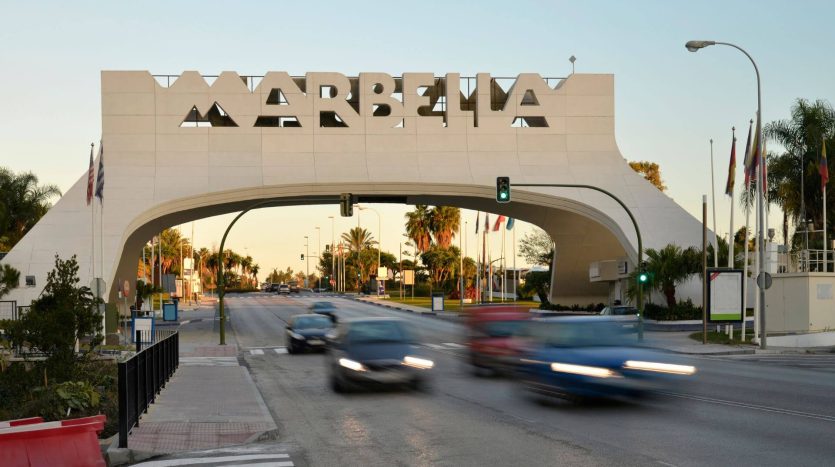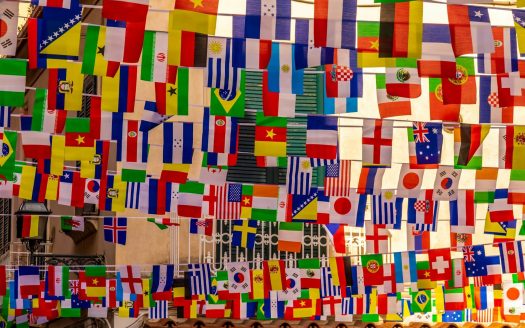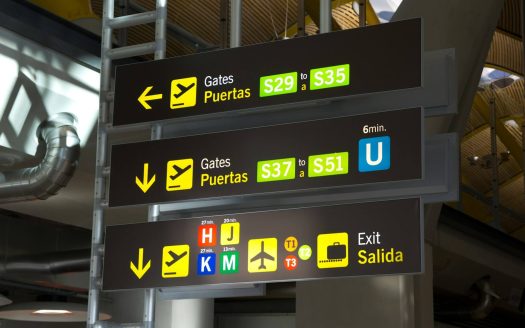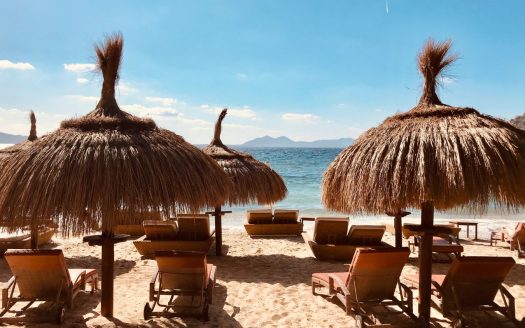Live and work Costa del Sol
Living and working Costa del Sol: More and more Dutchmen and Belgians are exchanging their busy lives in the Low Countries for a fresh start on the Costa del Sol. With more than 320 days of sunshine per year and a relaxed Mediterranean lifestyle, this region offers an attractive alternative to our often gray and hectic existence.
Living and working on the Costa del Sol means more than just enjoying the climate. We see a growing community of professionals pursuing their careers here, often as digital nomads or entrepreneurs. The combination of modern facilities, lower cost of living and an excellent work-life balance makes this coastal region increasingly popular with Dutch and Belgian expats.
In this guide to living and working on the Costa del Sol, we take you through all aspects of living in southern Spain. We cover not only the practical issues such as housing and work, but also the cultural differences and daily habits that will shape your new life.
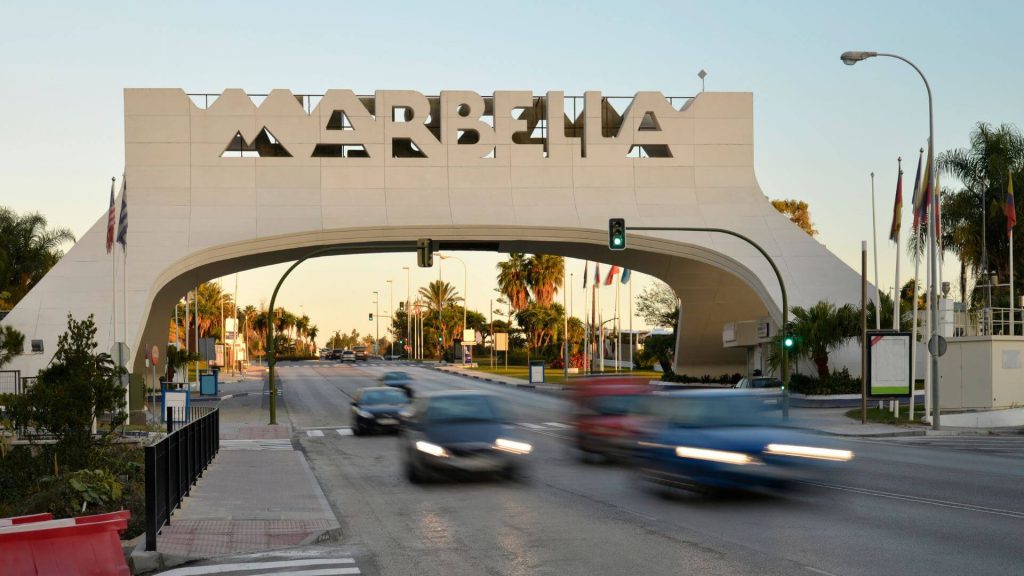
Daily Life on the Costa del Sol
Life on the Costa del Sol revolves around a very different rhythm than we are used to in Holland and Belgium. We have found that this adjustment is one of the biggest challenges for new expats in the region.
Difference in daily rhythm and working hours
Daily life on the Costa del Sol follows a unique pattern that differs greatly from Northern Europe. The working day usually begins around 10:00 am and is divided into two parts, with a long break in between. Many companies first work from 10:00 am to 2:00 pm, followed by an extended lunch break (siesta). The second shift runs from about 5:00 to 8:00 pm.
However, the Costa del Sol is home to many international companies that often maintain their own rhythms and hours.
Meal times follow a different rhythm:
- Breakfast: 10:00-11:00 a.m.
- Lunch (main meal): 2:00-4:00 p.m.
- Dinner: 9:00-23:00 p.m.
Social customs and etiquette
Social life on the Costa del Sol is much more outward-looking than in the Benelux. We see that Spaniards often use the street as an extension of their homes. Visitors are usually not invited to their homes but to cafes or restaurants. Family is central to the culture, and social engagements usually take precedence over work.
One notable difference is the greeting – two kisses on the cheek are standard, even on first encounters. We also noticed that punctuality is interpreted differently here; arriving half an hour “late” for social engagements is perfectly normal.
Adaptation to the Mediterranean climate
Climate has a major impact on daily life. With temperatures that can reach 45 degrees in the summer, it is important to adjust your lifestyle. The traditional siesta, between 2:30 and 4:30 p.m., is no longer common for everyone, but many stores and businesses still close during the hottest hours of the day.
Life here is lived more outdoors. Even in winter, the terraces are full, and the region offers countless opportunities for outdoor activities. From golf courses to water sports to hiking trails, there is always something to do outdoors.
The Costa del Sol welcomes a diverse international community, which has resulted in an interesting mix of cultures. English is widely spoken, making adjustment easier for Dutch and Belgian expats.
Financial Aspects of the Move
The financial side of living and working on the Costa del Sol often remains the deciding factor in choosing to move to the sunny region. Discover the concrete differences in costs and income.
Cost of living versus Netherlands/Belgium
One of the biggest advantages of living on the Costa del Sol is that it is considerably more advantageous is. The general cost of living is about 30% lower than in the Netherlands. For a family, this means savings of €450 to €600 per month on daily expenses.
We see this difference reflected in almost all aspects:
- Restaurant prices: 29.7% more advantageous
- Groceries: 29.4% cheaper
- Rents: 41% lower than in the Netherlands
Salary differences and purchasing power
When working on the Costa del Sol, you do have to expect lower salaries. The average net salary in Málaga is €1,854 per month, compared to €2,197 in Belgium and around €2,692 in the Netherlands. This also explains why many expats choose to work remotely or start their own businesses there.
Tax benefits and financial planning
On the Costa del Sol, you can benefit from some interesting tax schemes. The best known is the Beckham Law, which offers expats a flat tax rate of 24%. This scheme has recently been relaxed:
- Telecommuting now eligible for tax breaks
- The period of non-employment has been reduced from 10 to 5 years
- Spouses and children can also benefit from this arrangement
For a successful move, good financial planning is essential. It is recommended to maintain a buffer for unexpected expenses. It is also important to open a Spanish bank account and arrange money transfers in advance.
The difference in cost of living makes the Costa del Sol particularly attractive for retirees. With a Dutch or Belgian pension, we can often live more comfortably here. Moreover, Spanish health care offers excellent quality at a lower cost (you can visit the best private hospitals with a simple hospitalization insurance). Working on the Costa del Sol itself will generally offer lower wages than in the Low Countries.
Living and Housing
When we look at housing on the Costa del Sol, we see a fascinating mix of traditional Spanish architecture and modern developments that perfectly suit the international lifestyle we seek.
Popular residential areas for expats
We see that different areas along the coast have their own unique character. The most popular locations for living and working for Dutch and Belgian expats are:
- Marbella and Puerto Banús: Luxury lifestyle with prices up to €28,600 per sqm for premium locations
- Fuengirola: Excellent transport links and a large expat community
- Torremolinos: Multicultural atmosphere that makes it easy to settle in
- Estepona: Perfect for those seeking a more traditional Spanish atmosphere
- Nerja: Quieter alternative an hour from Málaga airport
Rental versus purchase market
The real estate market on the Costa del Sol currently remains very dynamic. Sales figures are almost reaching the peak levels of 2007.
The rental market also remains interesting.
For buyers, the market offers a wide spectrum of options:
- Modern apartments
- Traditional villas
- Luxury resorts
- Golf Residences
Tips for finding accommodation
In your search for your ideal permanent home, it may be important to:
Rent first: We recommend taking a temporary rental property first before buying. This gives you a chance to explore different areas. Traveling can also provide good insights.
Local research: Visit neighborhoods at different times. Some neighborhoods can feel very different in different seasons. Although the Costa del Sol is lively year-round.
Professional help: Work with a reliable real estate agent who has experience working with international buyers and understands your needs well.
Documentation: Make sure you have all the necessary paperwork in order. There are specific regulations available for expats that can make the process easier. A good real estate agent will put you in touch with the right parties for this.
Work and Career Opportunities
Business opportunities on the Costa del Sol have grown tremendously in recent years, especially with the digital revolution and increasing flexibility in where we can work.
Promising sectors for foreigners
We see that several sectors offer excellent opportunities for Dutch and Belgian professionals:
- Technology and IT: Málaga develops as ‘Silicon Valley of Europe’
- Tourism and hospitality: The region’s largest employer
- Real estate and property development: growing demand due to international interest
- Renewable energy: Spain invests heavily in green technology
- Water technology: great need for water treatment expertise
Remote work and digital nomadism
We are finding that more and more professionals are choosing to live as digital nomad on the Costa del Sol. The region attracts mostly young professionals, with 70% moving as couples. The main reasons we encounter are:
- Excellent Internet infrastructure for video calling
- Lower cost of living
- Modern co-working spaces in all major cities
Interestingly, more and more digital nomads are choosing smaller inland villages, where they combine tranquility with authentic Spanish culture.
Networking and business culture
Spanish business culture is quite different from what we are used to in the Benelux. Personal contact is essential here – Spaniards often want to get to know you first before doing business with you or they neglect the business relationship a bit if they don’t know you well.
Key cultural differences* we encountered:
- Lunches are often hot and consist of several courses
- Business appointments regularly take place over lunch or dinner
- In summer, companies start early and stop in the afternoon
- Many businesses close on Friday afternoon
For successful networking, we recommend:
- To invest in the Spanish language – English is mostly spoken by younger generations
- Be patient – decisions take more time than we are used to
- Maintain regular contact with business associates
Moreover, the business climate is less formal than it used to be, especially in the tech sector and with startups. Still, respect for hierarchy remains important – direct feedback as in the Netherlands is less common there.
*The above issues are a generalization of the culture on the Costa del Sol. Many companies and employees maintain a very “Northern European” culture with strict deadlines and transparent communication.
Practicalities and Regulations of living and working on the Costa del Sol
Proper administrative and regulatory preparation is essential for a smooth transition. The most important practical issues are:
Required documents and permits
For EU citizens, the process is relatively simple, but there are some crucial steps. The NIE (Número de Identificación de Extranjero) number is the basis for living in Spain. This number is needed for almost all official acts.
Essential documents that you will need to arrange (in the case of permanent relocation, if you are staying in Spain for 6 months or less per year not all of these items are necessary):
- NIE number for identification (often already required when purchasing your home)
- Registration in the population register (Padrón).
- Social security registration
- Proof of health insurance
- Statement of sufficient financial resources (€28,800 per year for the lead applicant)
Health care and insurance
The Spanish health care system (Seguridad Social) is excellently regulated. Public care is of a high level and comparable to what you are used to in Belgium and the Netherlands. To access state care, you will pay monthly social security contributions.
Many expats choose supplemental private insurance. The benefits are significant:
- Shorter waiting times for treatments
- Access to private clinics
- English-speaking medical staff
- Expanded coverage for specialty care
- …
Banking and administration when living and working on the Costa del Sol
Setting up financial affairs requires a structured approach. A Spanish bank account is indispensable for arranging utilities and other services. The process is as follows:
- Choose a sofa that fits your needs*
- Collect necessary documents (passport, NIE number)
- Make an appointment at a local branch
- Expect about €35 per quarter for a basic account
For tax matters, professional help is often indispensable. The Spanish and Dutch/Belgian tax authorities work closely together and actively exchange information. As a tax resident in Spain, you must file tax returns on your worldwide income.
An important point for entrepreneurs: accounting must comply with local regulations. A Spanish accountant (gestoría) is indispensable for correctly handling VAT returns (IVA) and financial statements.
For pensioners, it is reassuring that EU legislation protects your rights. You retain your pension rights from the Netherlands/Belgium, while being able to enjoy Spanish health care.
*We recommend, however, through your attorney arrange a bank account. There is no such thing as a good bank in Spain. Just look up some Google reviews of bank branches on the Costa del Sol, you will rarely see more than 3 stars. It is therefore convenient to work through an intermediary to create your bank account.
Conclusion on living and working on the Costa del Sol
A life on the Costa del Sol offers much more than just sunny days. This region combines the best of both worlds: the relaxed Mediterranean lifestyle with modern facilities you are used to from the Benelux countries.
The lower cost of living, along with excellent working and living accommodations, make the move attractive to different groups. Digital nomads benefit from the growing tech sector, while retirees enjoy a comfortable life with their Dutch or Belgian pensions.
Still, living and working on the Costa del Sol requires good preparation. The different daily rhythm, business culture and administrative procedures are quite different from the Netherlands and Belgium. With proper planning and an open attitude to cultural differences, this transition will be an enriching experience.
The Costa del Sol continues to develop as a dynamic region where international professionals and local traditions meet. More and more compatriots are finding their niche here and discovering a new lifestyle that combines the best of North and South.
FAQs about living and working on Costa del Sol
Q1. What are the most popular residential areas for expats on the Costa del Sol?
The most popular locations for Dutch and Belgian expats are Marbella and Puerto Banús for a luxury lifestyle, Fuengirola for its good transport links, Torremolinos for its multicultural atmosphere, Estepona for a more traditional Spanish experience, and Nerja as a quieter alternative.
Q2. How does daily life on the Costa del Sol differ from that in Holland and Belgium?
Life on the Costa del Sol has a different rhythm. The working day is divided into two parts with a long lunch break, meal times are later, and social life is more outward-looking. The climate plays a big role, with lots of outdoor activities and a relaxed Mediterranean lifestyle.
Q3. What are the financial benefits of living on the Costa del Sol?
The cost of living is about 30% lower than in the Netherlands, with cheaper restaurant prices, groceries and rents. There are also tax benefits for expats, such as the Beckham Act that offers a flat tax rate of 24%. Retirees can often live more comfortably on their Dutch or Belgian pensions.
Q4. Which sectors offer good career opportunities for foreigners?
Promising sectors for Dutch and Belgian professionals are technology and IT, tourism and hospitality, real estate and project development, renewable energy and water technology. In addition, there is a growing trend of remote work and digital nomadism, supported by excellent Internet infrastructure and modern co-working spaces.
Q5. What are the most important practical things to take care of when moving to the Costa del Sol?
Essential steps include obtaining a NIE number, registration in the population registry, social security registration, arranging health insurance and opening a Spanish bank account. For EU citizens, the process is relatively simple, but professional help with tax matters and accounting is recommended.


